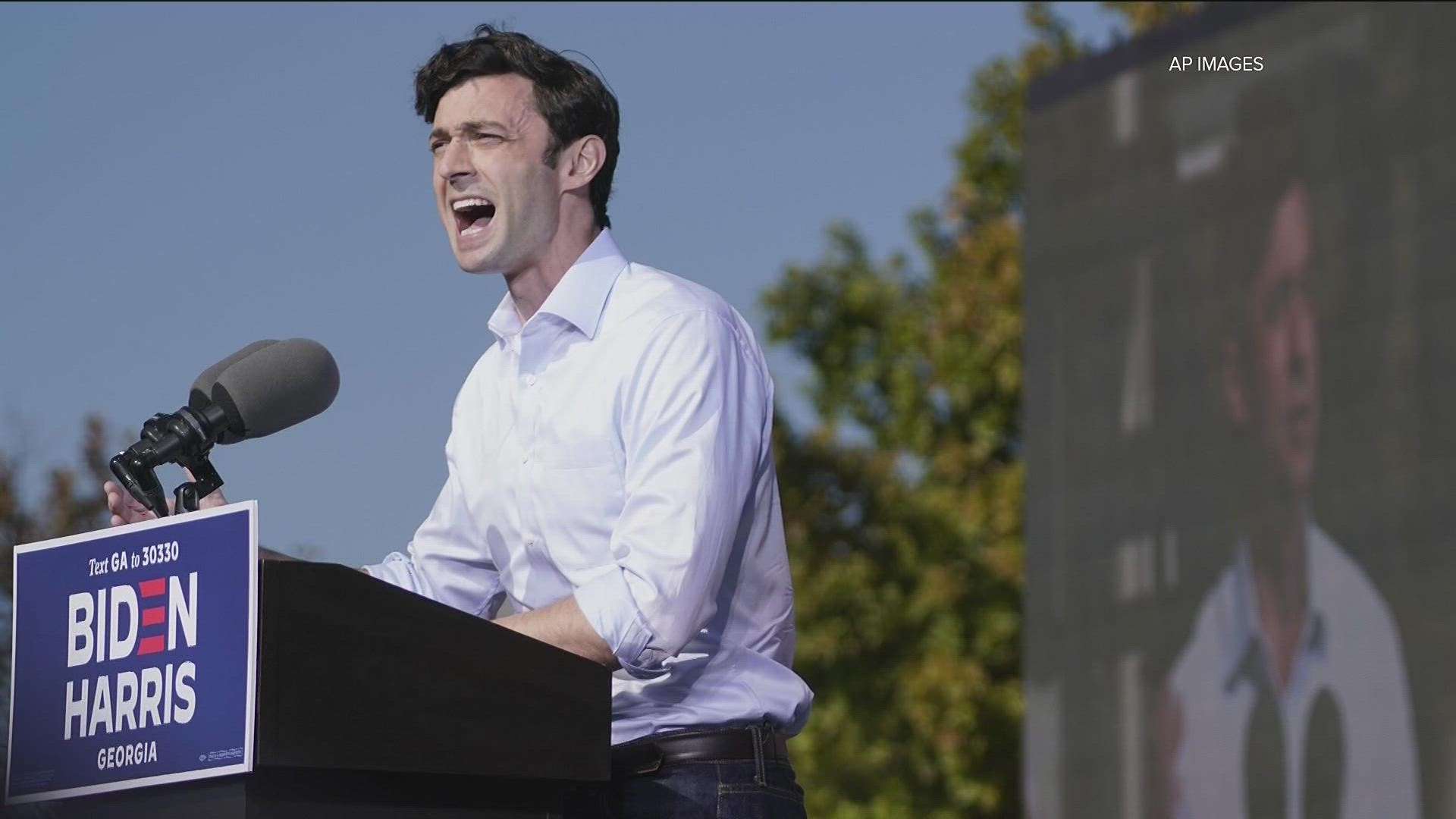ATLANTA — Georgia Sen. Jon Ossoff submitted a bill this week to rewrite the Federal Election Campaign Act of 1971 with the intent of curbing how corporations influence elections and other political activity.
Ossoff's office said he and Arizona Sen. Mark Kelly had introduced the Ban Corporate PACs Act, which would alter the 1971 law to prohibit for-profit corporations from forming or managing a political action committee.
Political action committees are basically fundraising vehicles to go toward advocacy on behalf of certain political issues or on behalf of electing political candidates.
Many of the biggest-spending PACs are corporate-backed - AT&T's and Comcast's, for instance, were both among the top-six in amount spent during the 2019-20 election cycles, according to the political money tracking website Open Secrets.
Open Secrets explains that while corporations cannot directly give money to candidates, political parties, or PACs, their deep-pocketed executives and shareholders can. And they can "cover almost all expenses incurred by their affiliated PAC, including staff salaries, fundraising expenses and administrative costs" as well as use corporate funds to "create incentives for their employees to fund the PAC."
Ossoff's bill would, according to his office, ban corporations from establishing and managing their own PACs, ban the solicitation of contributions from corporate stockholders by PACs and terminate existing corporate PACs, with their current funds to be disbursed within a year.
Ossoff touts his own record of having refused corporate PAC contributions during his own Senate campaign, though some of his top backers have included donations from individuals inside corporations such as Apple and Amazon.
“I don’t take contributions from corporate PACs. Corporate money corrupts the legislative process, and I’m leading this effort alongside Sen. Kelly to ban corporate PACs altogether — as I said I would when I ran for the Senate,” Ossoff said in a statement.
The bill comes on the heels of Ossoff also introducing legislation that would ban members of Congress from stock trading.

